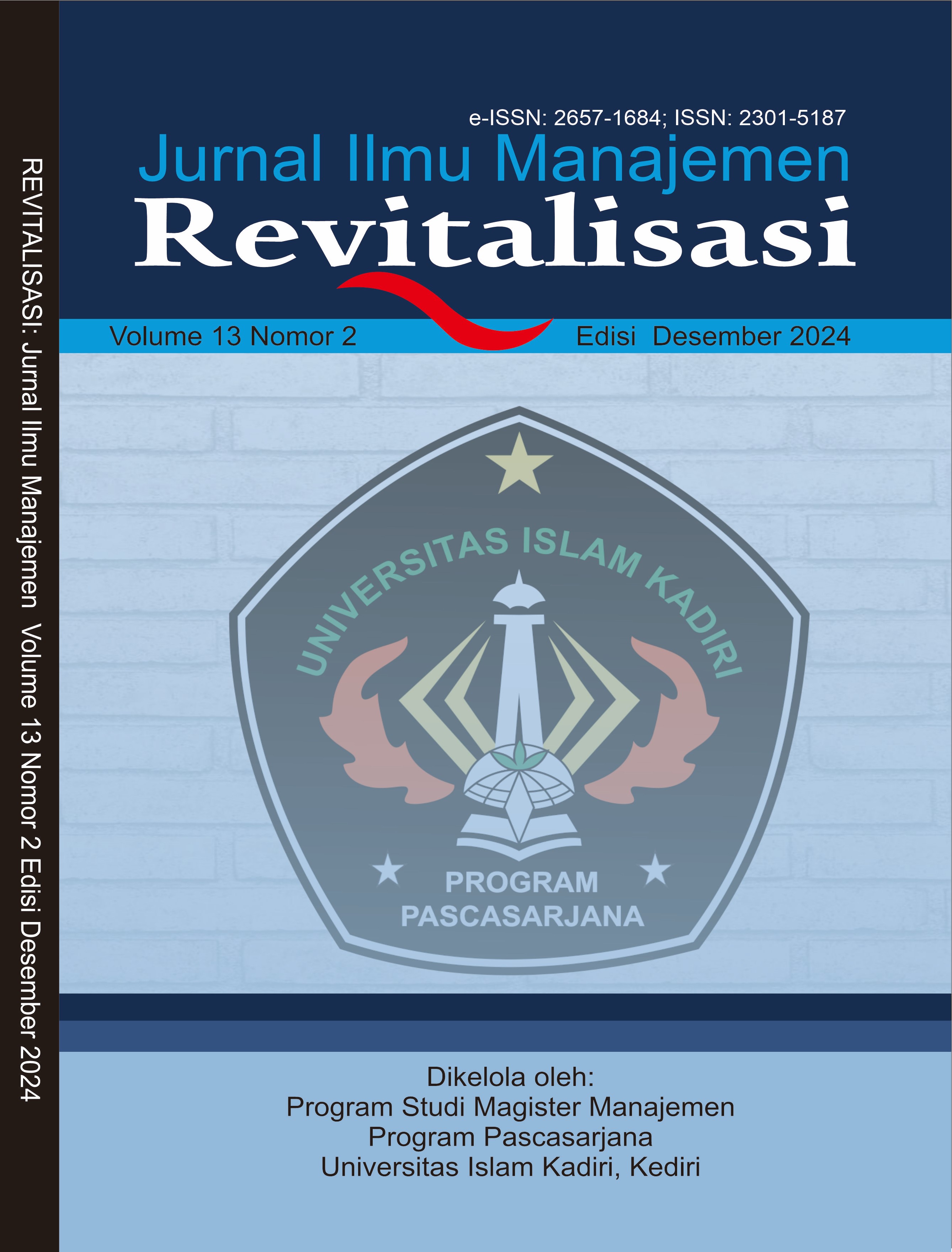Kurikulum Merdeka untuk Mewujudkan Generasi Z Berdaya Saing Society 5.0
Abstract
Merdeka Belajar Kampus Merdeka Curriculum is the latest policy in Indonesia that prioritizes learning activities outside of campus/school life, with assessments predominantly focusing on the characteristics of Pancasila and diversity as the hallmarks of the Indonesian nation, and the alignment of graduate outputs with industry and entrepreneurship in accordance with global developments to prepare students for future careers. The gap between social life and current technological development makes curriculum innovation urgently necessary so that students can use technology wisely to solve social problems and play a role in community life. The concept of education towards outcome- based education in the era of society 5.0 has become an urgent need in the world of education. This literature review research found that the implementation of the Merdeka Curriculum faces more complex difficulties and challenges, considering that the application of this curriculum requires the active involvement of educational facilitators and students, which in practice has not been optimally achieved across all educational units. A capacity-building program for learning facilitators is needed, supported by educational units and relevant stakeholders, to improve time management skills, conduct clear and mutually agreed-upon learning orientations, create a culture of active involvement from all parties involved in the project, manage students' active participation in group work, collaborate with various parties including those outside the school, optimally utilize technology, and evaluate teacher and student projects using individual and group performance assessment methods, followed by preparation for the next project.
References
Alfikri, Adam Wildan. (2023). Peran Pendidikan Karakter generasi Z dalam Menghadapi Tantangan di Era Society 5.0. Prosiding Seminar Nasional Pascasarjana Universitas Negeri Semarang, 21-25.
Almulla, M. A. (2020). The effectiveness of the Project- based Learning (PBL) approach as a way to engage students in learning. Sage Open, 10(3), 1-15
Dewi, M. R. (2022). Kelebihan dan kekurangan Project-based Learning untuk penguatan Profil Pelajar Pancasila Kurikulum Merdeka. Inovasi Kurikulum, 19(2), 213-226
Houtman. (2020). Merdeka Belajar Dalam Masyarakat 5.0. Jurnal Ilmiah Pendidikan , 39-45.
Kristanti, Y. D., & Subiki, S. (2017). Model pembelajaran berbasis proyek (project-based learning model) pada pembelajaran Fisika di SMA. Jurnal Pembelajaran Fisika, 5(2),
122-128.
Marisa, Mira. 2021). Curriculum Innovation “Independent Learning” in the Era of Society 5.0, Santhet: Jurnal Sejarah, Pendidikan dan Humaniora, Vol. 5, No. 1.
Muis, A., & Dewi, L. (2021). Day care management course design based on OBE and PjBL for teacher education of early childhood education program. Inovasi Kurikulum, 18(2), 128-
140.
Suryaman, Maman. (2020). Orientasi Pengembangan Kurikulum Merdeka Belajar. Prosiding Seminar Nasional: Pengembangan Kurikulum Merdeka Belajar UNY, 13-28.
Saridawati. (2020). Peranan Pelatihan dalam Upaya Peningkatan Produktivitas Kerja Karyawan di Lingkungan Departemen Pekerjaan Umum. Syntax Literate; Jurnal Ilmiah Indonesia, 5(5), 163–176.
Suryaman, M., Widyastuti Purbani, Tadkiroatun Musfiroh. (2020). Kurikulum dalam Perspektif Inovasi Pembelajaran. Jurnal Kependidikan. Vol. 3, No. 1,
Mei 2020, pp165-176.
Putranto, FX Gugus Febri & Natalia, Christiayu. (2022). Generasi Z dan Transisi Pekerja Blue- Collar: Tantangan di Tengah Pandemi. Jurnal Ekonomi Indonesia, VOl. 11, No. 2.
Poerwati, C. E., & Cahaya, I. M. E. (2018). Project-based drawing activities in improving social- emotional skills of early childhood. Jurnal Obsesi: Jurnal Pendidikan Anak Usia Dini, 2(2), 183-193
Qurniawati, Rina Sari & Nurohman, Yulfan Arif. (2018). eWOM pada Generasi Z di Sosial Media. DAYA SAING Jurnal Ekonomi Manajemen Sumber Daya, Vol. 20, No. 2.
Indramawan, A., & Hafidhoh,
N. (2019). Pendidikan karakter sebagai upaya meningkatkan semangat belajar. Pendidikan Karakter Sebagai Upaya
Meningkatkan Semangat Belajar, 477–485.
Thahery, Rusyaidi. (2023). Implementasi Kurikulum Merdeka Belajar Kampus
Merdeka dalam Menghadapi Era Society 5.0. Technical and Vacational Education International Journal, Vol. 3, No. 1.
Fuadi, T. M., & Aswita, D. (2021). Merdeka Belajar Kampus Merdeka (Mbkm): Bagaimana Penerapan Dan Kedala Yang Dihadapi Oleh Perguruan Tinggi Swasta Di Aceh. Jurnal Dedikasi Pendidikan, 5(2),
603–614.
Sudaryanto, Widayati, W., & Amalia,
R. (2020). Konsep Merdeka Belajar-Kampus Merdeka dan Aplikasinya dalam Pendidikan Bahasa (dan Sastra) Indonesia. Jurnal Bahasa, 9(2), 78–93.
Prastowo, A. I., Firman, A. J., Mulyanto, T., & Wiranata, R.
R. S. (2020). The
Independent Learning Curriculum Concept of Imam Zarkasyi’s Perspective In Pesantren For Facing The Era of Society 5.0. In Proceedings of the 4th International Conference on Learning Innovation and Quality Education (pp. 1–6)
Vhalery, Rendika, et al. (2022). Kurikulum Merdeka Belajar Kampus Merdeka: Sebuah Kajian Literatur. Research and Development Journal of Education, Vol. 8, No. 1.
Satriawan, W., et al. (2021). Guru Penggerak Dan Transformasi Sekolah. Al-Idarah: Jurnal Kependidikan Islam Volume, 11(1), 1–12.
Sherly, Dharma, E., & Sihombing, H.
B. (2020). Merdeka belajar: kajian literatur. Urban-Green Conference Proceeding Library, 1, 183–190.
Sibagariang, D., Sihotang, H., Murniarti, E., & Indonesia, U. K. (2021). Peran Guru Penggerak Dalam Pendidikan. Dinamika Pendidikan, 14(2), 88–99.
Panggung, P. (2021). Guru Penggerak Dan Transformasi Sekolah. Al-Idarah: Jurnal Kependidikan Islam Volume, 11(1), 1–12.
Susetyo. (2020). Permasalahan Implementasi Kurikulum Merdeka Belajar Program Studi Pendidikan Bahasa Indonesia FKIP Universitas Bengkulu. Prosiding Seminar Daring Nasional: Pengembangan Kurikulum Merdeka Belajar, 1(1), 29–43.
Sopiansyah, D., & Masruroh, S. (2022). Konsep dan Implementasi Kurikulum MBKM (Merdeka Belajar Kampus Merdeka). Reslaj: Religion Education Social Laa Roiba Journal, 4(1), 34–
41
Koesoema, D. A. (2020). Merdeka Belajar. KOMPAS, 25 Pebruari, 6.
Rahayu, Restu, et al. (2022). Implementasi Kurikulum Merdeka Belajar di Sekolah Penggerak. Jurnal Basicedu, Vol. 6, No. 4.
Tohir, M. (2020). Merdeka Belajar:
Kampus Merdeka.

This work is licensed under a Creative Commons Attribution 4.0 International License.
 This work is licensed under a Creative Commons Attribution 4.0 International License
This work is licensed under a Creative Commons Attribution 4.0 International License




















